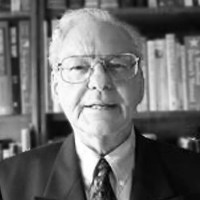Question
What are some ways to self-regulate stress?
Answer
Self-Regulation of Symptoms
The first thing I recommend is an exercise program. The program I usually recommend is aerobic exercises in the morning. During the afternoon, I would recommend something that relaxes. According to circadian rhythms, the body is most fatigued at this time. Stretching exercises can also be extremely important in terms of back pain. Exercises such as pushups, sit-ups, pelvic tilts and adaptive Tai Chi and yoga can also be effective. All of these exercises are helpful in developing hardiness that individuals need in the 21st Century to withstand the affects of stress.
Meditation is also extremely important for every individual to manage stress. Meditation could be performed in as little as five minutes a day. Some people meditate for up to a half hour. However, for individuals who are just starting out, they only need to find a quiet place, close their eyes, be in an ergonomic position and use visual imagery. By doing this, they are closing out all of their anxiety and worries.
The third aspect of self-regulation is sleep hygiene. Individuals who have difficulty sleeping usually have a problem with excessive stress. The term, “sleep hygiene” has come from a number of sleep laboratories throughout the country which look at people who have sleep disorders such as insomnia, sleepwalking, sleep nightmares and anything else which interferes with a person's sleep. There are behavioral techniques that can effectively deal with sleep disorders. Some of these techniques are very practical such as making the bedroom temperature cooler, going to bed and waking at the same times every day. Taking a warm bath right before you go to bed has been effective for some people. Also eating a small snack before you go to bed, such as milk and cookies or yogurt, has been effective in helping some individuals. Each individual may have a different way to sleep better. Self regulation is the way each individual develops their own effective sleep hygiene program.
Communicating with others can really help to deal with stress. Having a confidante or speaking with a professional can help an individual deal with stress in an effective way.
Learning a new activity is a way an individual can take their mind off stressors. It could be learning a new sport, starting to perform Tai Chi or yoga, learning a musical instrument, et cetera.
Music has been shown to be a very important stress manager. Incorporating music into a daily routine can be very therapeutic. Some find classic music performed by Mozart or Tchaikovsky to be very soothing, while others might be calmed by folk music. The individual has to determine which type of music is effective for them.
Reading has also been noted to be an effective way to deal with stress. Some say that mysteries are a good way to deal with stress because you become engulfed in the storyline and that can reduce current stressors.
Finally, cooking and eating good food are ways to deal with stress.
